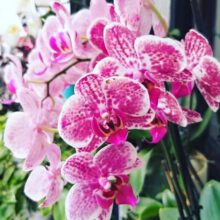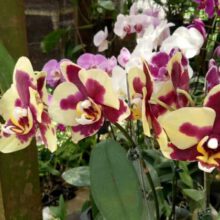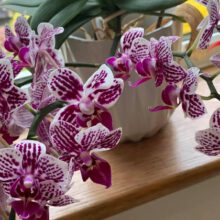Care Tips for Orchids – How to Grow Non-Flowering Plants
Are orchids naturally growing? The answer is yes. They are considered semi-arid plant species, which means that it needs more moisture than other orchid species. This is why they need to be placed in an area of your home where the humidity level is not too high, and has direct access to an outdoor part of your yard such as a deck or balcony.
The first step in growing orchids is finding the right location. When you choose a location for your orchid plants, consider how large the area is that you have to dedicate to the plant. Do not plant them in a small space since they will not bloom. It is better to plant them in a larger area since they can grow freely. Another factor to consider is if you have trees or not near the place where you are planning to plant the orchid.
Do not over water your orchids. Contrary to what many people think, orchids do not need a lot of water. All they need is to receive an average of one inch of water per week. Most orchids do fine with only one inch of water per week. If you notice that they are swelling or have a whitish tint to their leaves then you may need more water. Do not over feed your plants since this may also damage them and cause them to die.
Do not leave your orchids outdoors all day long. Some people believe that when their orchids are left out in the sun all day long it helps to stimulate their growth. It is true that the heat from the sun stimulates the growth of plants, but they will also become stressed because of the lack of darkness. This can cause them to wilt which is definitely not good for your orchids.
The other common myth about orchids is that they are easy to grow. Well, let me tell you now that orchids are very complicated plants to take care of. They require a great deal of attention, patience and effort in order for them to grow properly. In fact, as a newbie orchid grower you are better off taking your time and learning how orchids naturally growing work before trying to grow them the wrong way.
Do not use pesticides if you are growing orchids. Although there are some types of orchids that can be grown without the use of pesticides, these types are very sensitive to pesticides. They could even die right at the stem when exposed to them. That is why orchids need to be grown in the soil where they grow naturally.
One last thing that you should avoid doing is to try to transplant orchids. This is a very bad idea if you plan on keeping your plants healthy or alive. When you transplant orchids you are negatively affecting their environment and that is something that orchids naturally growing plants need. Plus, it can be very messy. Plus, the roots could take hold of the other root system of your plant and cause them to get stuck together.
If you follow these tips then you will certainly have a much better chance of enjoying your orchids. There are many types of orchids that you could try out. Just make sure that you take your time and learn how orchids naturally growing work before trying to grow them. Then you will have absolutely no problems with your new plants.
Some things that you need to remember are that you will need to water a lot more than you might think. They tend to get really dry after a day or two. This can lead to them drying out and not growing as well as they could. You will also need to feed them a lot more than you might think. Most people think that you just give your plant food from the bottom of the plant but that is not quite the case.
You will need to fertilize your plants once a week. Most people think that you only do it when the leaves are turning color but this is wrong. You will want to fertilize all of your orchids at least once a week. This will help them grow strong and healthy.
Last but not least, you will also want to mist your plants. This is very important. Do not ever leave your orchids alone without some protection from being mowed or shoveled. That is always the best solution to avoid having to add fertilizer. It will also help you avoid any diseases that might develop on your plants.



